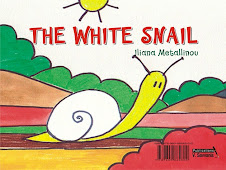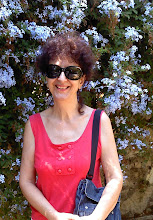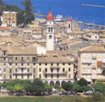
The island of Corfu (Kerkyra for the Greek) lies on the tip north west border of Greece, near Italy. Among the green that covers the whole island from north to south, there are vast olive groves that are the source of its main local product: olive oil.
I use olive oil every day. My ancestors used olive oil every day, too, and they lived to an old age – some lived more than a century. So, the use of olive oil dates back to many centuries ago when the first inhabitants of the island actually lived on it. That’s why there are vast olive groves all over the island. From a distance, the visitor can only see acres of olive trees covering the whole island.
I use olive oil almost everywhere, as it not only adds a special flavor to food, but also boosts my immune system as it contains Vitamin E. Combined with vegetables and fish is an excellent food, as well as with meat of every kind for those who are meat-eaters. The best brand is the extra virgin olive oil which has less acidity. Local recipes that include olive oil can be found at Kerkyra Online
http://lianametal.tripod.com/kerkyraonline/id13.html
But how is olive oil extracted from olives?
A trip to the nearest olive oil refinery gave me the answer.
The refinery is in the middle of a green field, in Korakiana village, just 14 kilometers from Corfu town. It is an old building that has been renovated recently. I know the owner who lives in the village and who spent his whole life as a blacksmith and a refiner. He’s got his own olive groves and he started this refinery for his own needs. At first he used the old way to extract olive oil. He used two round mill stones that were crushing the olives as they were rotating with the help of a horse. This was replaced by a man operated device made from iron and wood, but now everything relies on the new technology.
I went into the refinery to watch the process of olive oil making. I saw a spacious room with a kind of machinery that consisted of a complex of long shiny steel tubes. It reminded me of the device in the Chocolate Factory story! At one side they emptied a sack of olives mixed with leaves. This is the raw product the villages gather in the fields. They actually spread large nets under the trees for the olives to fall on them and then they store them in sacks. This mixture went through a tube where they got sorted out by means of compressed air. Then the olives went through a long tube where they got pressed and separated from their stones. At the other end of the tube, which was a couple of meters long, the new olive oil started trickling into a pot. Then they measured the acidity of the product. If it is less than 2 degrees they use it for eating, over 2 they sell it to soap manufacturers.
The owner gets a small percentage of the extracted olive oil as payment along with a small sum. He then sells it to his customers.
I should also mention another product of the olive tree; the olives.
These are small, black and tasty olives, freshly gathered by the villagers in the Corfiot olive groves. I can’t find them all the year round though. The people gather olives when the crop is ripe enough to fall. So, local olives are available in winter and spring as well as in late autumn. I know that and I go to the local super market to get as many olives as I can store at home. I store them in clay or glass jars filled with salty water. If I want to consume them soon, I preserve some in smaller jars filled with olive oil and vinegar. In this way they can be kept fresh for a very long time.
These local olives are very tasty and very different from all the other types of Greek olives which are a lot bigger. They can be found only in big super markets on the island such as 'Demetra' markets or ‘Sconto’ markets.






6 comments:
I first noticed the olive oil factory from our balcony because in chilly February it was well floodlit, open all night working 24 hours.
So, you have a panoramic view!
Local people gather olives twice ( or 3 times)a year-that's when the olive factory is very busy. I happened to be there 2-3 years ago while they were working and I was amazed at the new technology they had installed.
It's so good to see a small business working well with local produce. I dream that there could be more like this in the future instead of everything having t get bigger. Did the business get any help from the EU or Greek government in getting the new technology?
I don't really know, they might have. But I know this family, they've been doing this for years (in the same place but with traditional means)as they live on it along with their plumbing business. They also make iron gates and balconies. The father started this and his son , Vasilis, is now the owner.
They sound like really good business people and perhaps we will ask them about replacing our balcony and outside staircase that the 'foolish' English who owned the house before us removed. I feel sure this conversation was destined so that you would give us useful, as well as interesting, information! See the conversation we had with the Leftheris about our lost balcony:
http://democracystreet.blogspot.com/2009/04/village-resurrection.html
I read it! You are very descriptive! A balcony is an asset to a house. You can restore it, why not? The plumber I told you about makes iron bars for balconies-not the whole balcony-you will need a builder. In town we have 5 balconies (I wouldn't like to live here without at least one!)and I have the illusion that I can get out...I paint in the big balcony, so it's quite useful!
Post a Comment